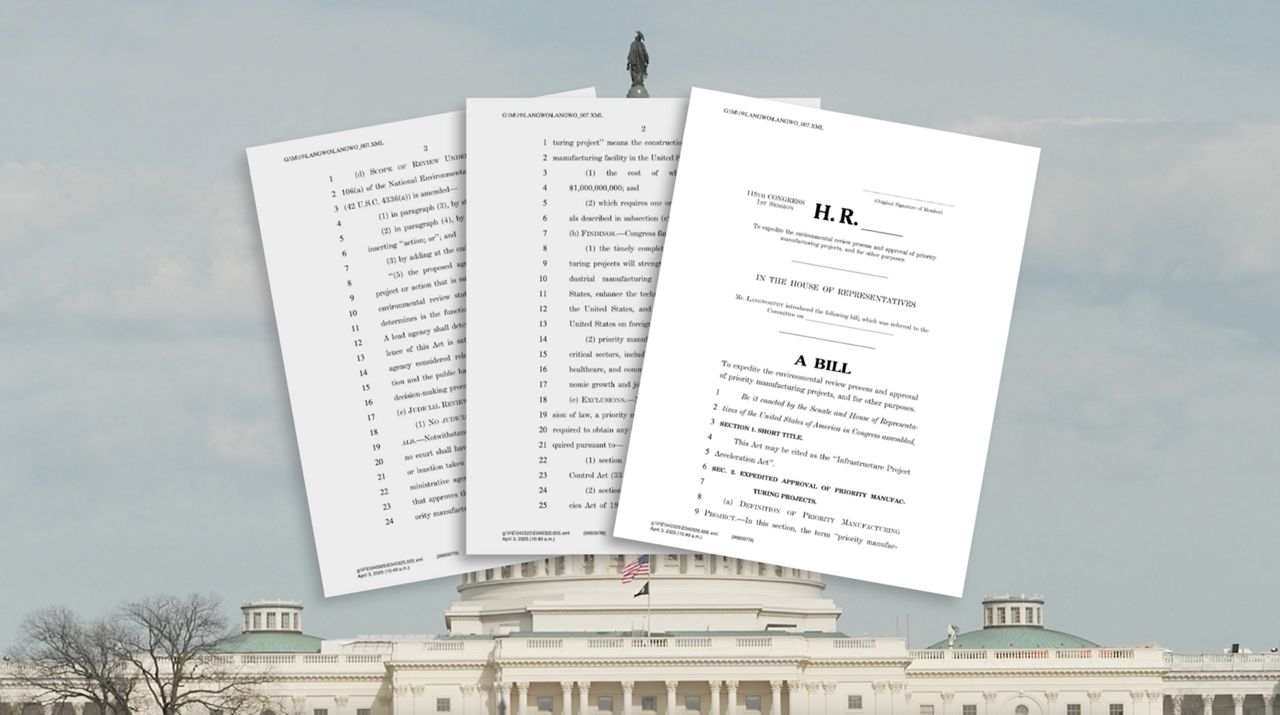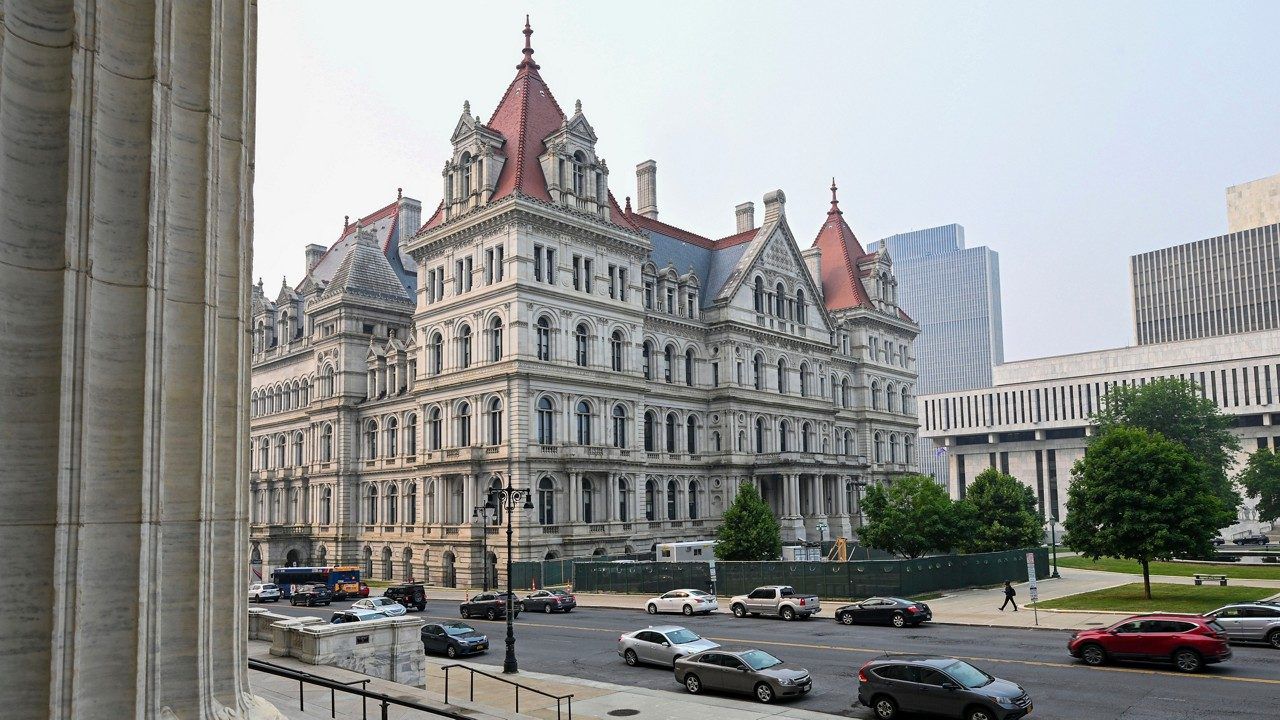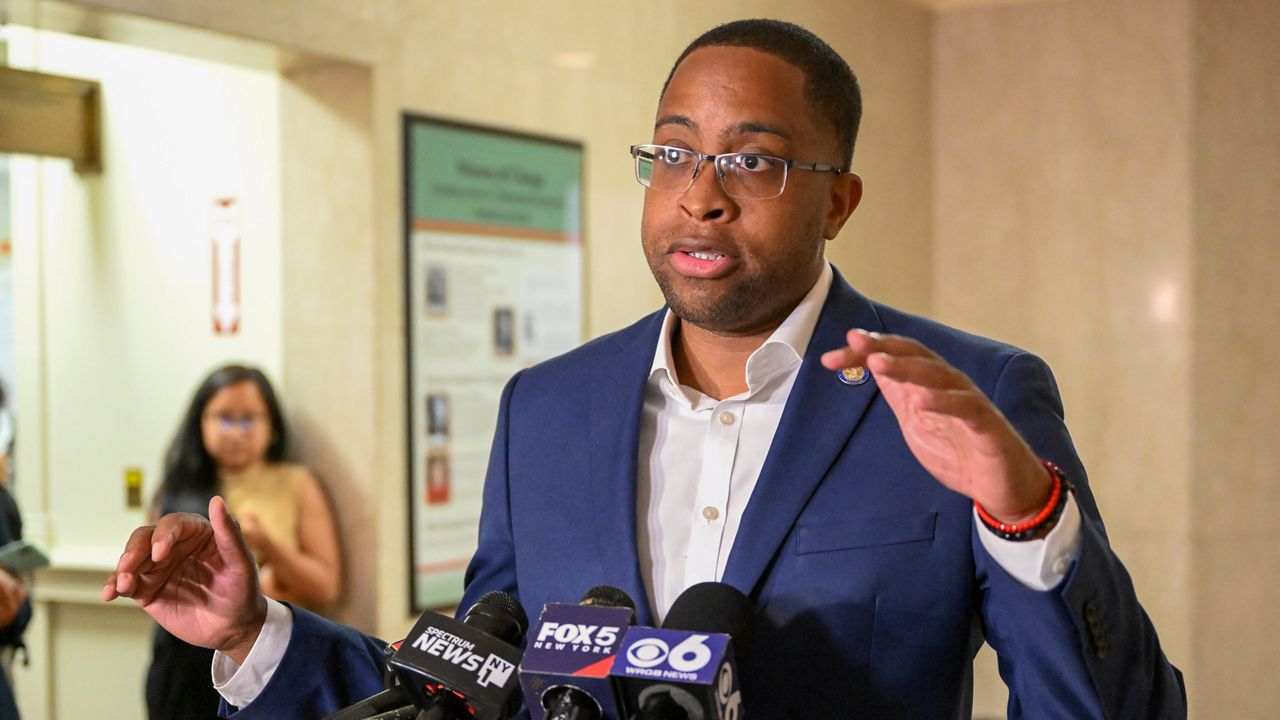The state Senate gave final approval to a two-year moratorium on a specific type of cryptocurrency mining hours after the good-as-dead bill was revived Thursday.
Lawmakers said Senate Leader Andrea Stewart-Cousins, a Democrat from Yonkers, announced the controversial crypto mining bill was back on the negotiating table Thursday morning after hundreds of people called and pressured lawmakers to stop state-issued permits for new carbon-base fueled crypto mining for the next two years.
The bill, which passed the Assembly in late April, would also require the state Department of Environmental Conservation to study the energy-sapping crypto mining method and its effect on climate change.
"Last year, we passed a more stringent version of this legislation, but it was not able to move in the Assembly," sponsor Sen. Kevin Parker said Thursday. "This is not a crypto moratorium. This is a moratorium on using peaker plants, which are dirty coal- and gas-burning plants that usually only run seven or eight hours a month, but using crypto mining, [these plants] are running 24 hours a day, 365 days per year."
Cryptocurrency miners have been quick to expand across Upstate New York by buying and repurposing old power plants to house the operations and make on-site energy behind the meter. The state has about 45 retired power plants across upstate regions.
Any cryptocurrency mining based off renewable energy is tied to the grid or small-scale, individual boutique mining is not affected by the moratorium. It also does not prevent any person's ability to invest in, buy, sell or use cryptocurrency in the state.
Lobbyists with Club For Growth, conservative think tanks like FreedomWorks and other PACs, have spent millions of dollars in the last few months to fight the moratorium introduced for the second time, arguing the temporary ban or stricter regulations will prevent the industry from emerging in the state.
"That was having a cooling effect int he Senate...but the huge push in the last couple of days by everyday New Yorkers, who have been calling senators and the environmental advocates, has had an impact," said Assemblywoman Anna Kelles, who sponsored the measure in the lower house.
People with close ties to the industry or crypto traders in their districts have expressed concern about adopting the study and two-year hiatus, causing tension among senators.
"The people who kind of really run the cryptocurrency operations are the same cowboys who do the stuff around hedge funds," Parker said. "And these are the folks who want an unregulated market in every single way. They don't want to be told no. They don't want to be told 'Here are the bounds in which you can operate. They just want the Wild Wild West."
Studies or regulation will not overturn the state's progress in the global crypto market, Kelles said. The Ithaca Democrat explained cryptocurrency mining follows the cheapest energy by design, such as hydroelectric energy, of which Upstate New York has a surplus. Crypto mining creates few jobs, she added, as the computer processors involved in crypto mining run a simple algorithm and do not require large numbers of engineers to operate.
"It is a tremendous amount of money, and it is sexy and new technology that a lot of people don't know," Kelles said. "It's very easy to create a flashy message that this will absolutely stifle the industry and make the industry leave the state when there isn't any reason."
Republicans stand firm against the measure, saying it will infringe on jobs and hurt a blossoming area of the economy.
"Let's not make crypto the next Amazon," Senate Minority Leader Rob Ortt, a North Tonawanda Republican, said Thursday night. "We are the financial capital of the world and this is the next financial currency. Unfortunately, Albany extremists are rejecting an exciting new opportunity that has the potential to have a positive impact on our economy.
"We must work with the industry — instead of against it — to ensure better environmental outcomes and protect needed private investment in Upstate New York," Ortt added.
Lawmakers on both sides of the debate are urging as many people as possible to call and pressure their state senators' offices to adopt or reject the moratorium.
Senators have hours to act, and expect to leave Albany for the year early Friday morning.









